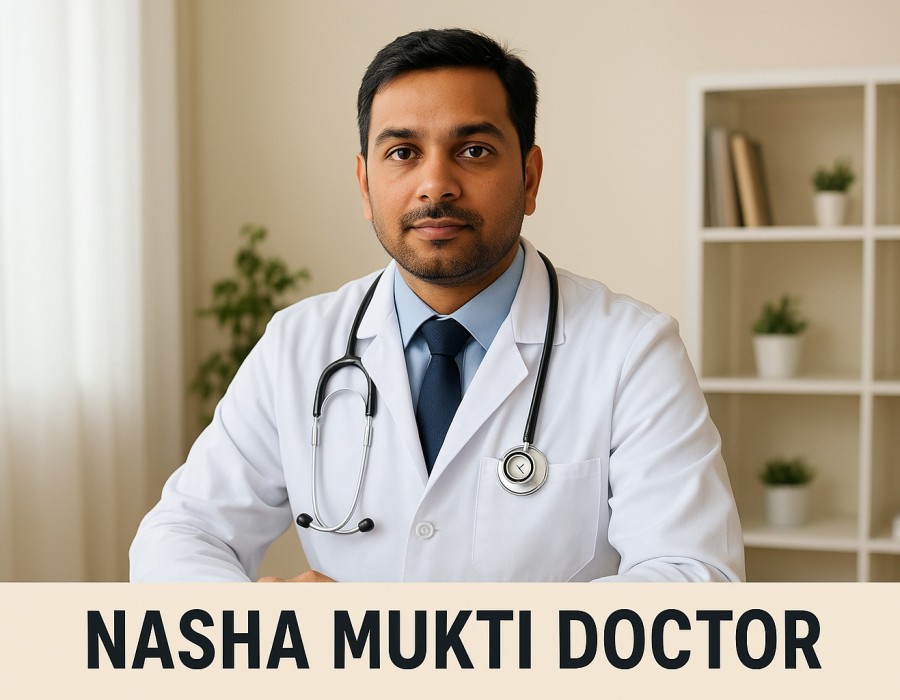Introduction
Addiction is one of the biggest health and social issues affecting individuals and families today. Whether it involves alcohol, drugs, or behavioral dependencies, prevention is always more powerful than cure. A nasha mukti doctor, also known as a de-addiction specialist, stresses that awareness, early guidance, and emotional support can save lives. Parents, teachers, and community leaders play vital roles in helping young people build resilience and make positive choices that keep them away from addiction.
Understanding Addiction and Its Early Signs
Addiction rarely begins as a conscious choice — it grows gradually through exposure, curiosity, or stress. Experts in addiction treatment explain that habits like drinking, smoking, or experimenting with substances start as coping mechanisms but can lead to dependency over time.
According to a leading nasha mukti doctor, early warning signs include mood swings, irritability, secrecy, changes in friend circles, loss of interest in hobbies, or declining academic performance. Recognizing these indicators early allows timely support through counseling or a rehabilitation center, preventing the situation from worsening.
Understanding how substances affect the brain’s reward system helps families and communities respond compassionately rather than reactively.
The Role of Parents in Addiction Prevention
Parents are the strongest influence in shaping a child’s mindset and coping skills. A substance abuse counselor advises that healthy communication and emotional security at home are the most effective shields against addiction.
- Open Communication: Discuss the effects of alcohol, drugs, and smoking openly. Encourage your child to ask questions rather than hiding curiosity. A nasha mukti doctor suggests explaining the mental and physical impact of substance abuse using real examples, not fear tactics.
- Be a Role Model: Children observe and imitate adult behavior. Maintaining a balanced lifestyle and managing stress positively helps them learn self-control.
- Set Healthy Boundaries: While independence is important, monitoring your child’s friends, activities, and social media habits keeps you aware of potential risks.
- Encourage Stress Management: Teach your children positive ways to handle stress — through art, music, sports, or meditation — which lowers their likelihood of turning to addictive substances.
- Seek Professional Help Early: If you notice unusual behavior, reach out to a nasha mukti kendra or mental health expert before the problem deepens.
Teachers as Key Guardians of Prevention
Teachers play an equally significant role in addiction prevention. Since students spend most of their time in school, teachers can notice early behavioral changes that parents may miss.
- Identify Early Red Flags: Unexplained absences, loss of focus, or declining grades can indicate emotional distress or substance exposure.
- Integrate Life-Skills Education: Schools can incorporate lessons on self-esteem, empathy, and decision-making to strengthen emotional intelligence.
- Collaborate with Professionals: Partnering with a de-addiction specialist or nasha mukti doctor for workshops and awareness sessions ensures students receive accurate and science-based information.
- Promote Peer Support Programs: Encourage older students to mentor younger ones. Positive peer influence often prevents risky behaviors from taking root.
Community Leaders and Their Responsibility
Communities shape collective attitudes toward addiction and recovery. Religious heads, social workers, and local leaders can help create an environment of understanding and proactive engagement.
- Awareness Drives: Organize public sessions with nasha mukti doctors and rehabilitation experts to educate people on prevention and treatment.
- Accessible Counseling Centers: Establish local helplines or community de-addiction programs where individuals can seek help confidentially.
- Support Groups: Encourage families to share their stories of recovery. When people see real-life examples of healing, stigma begins to fade.
- Youth Engagement: Promote sports, arts, and volunteering opportunities that give young people a sense of purpose, reducing the temptation of substance use.
Breaking the Stigma Around Seeking Help
One of the biggest barriers to recovery is the stigma associated with addiction. Many people hesitate to reach out to a nasha mukti doctor due to fear of judgment or social shame. It’s essential to understand that addiction is a medical and psychological condition, not a moral failing.
By spreading awareness and normalizing mental health conversations, communities can make it easier for individuals to seek help. Compassion, confidentiality, and encouragement are key values that every family and educator should uphold.
Holistic and Scientific Approaches to Prevention
Modern addiction recovery centers combine both medical and holistic methods to strengthen prevention. A nasha mukti doctor often integrates therapies like mindfulness, yoga, meditation, and cognitive behavioral therapy (CBT) to help individuals develop emotional balance.
Promoting physical fitness, nutritious food, adequate sleep, and stress management builds a strong foundation for mental health. When people learn to handle challenges positively, the need for addictive relief naturally declines.
Long-Term Prevention Strategies
Sustainable prevention requires consistent awareness and follow-up. A rehabilitation center doesn’t just treat addiction — it also educates families on how to maintain long-term sobriety.
Community awareness programs, continuous parent-teacher collaboration, and annual mental health workshops can keep the focus on prevention. De-addiction specialists recommend regular mental health check-ups just like physical exams, especially for teenagers and working adults.
Conclusion
Addiction prevention is not the responsibility of one person — it is a collective effort that begins at home and extends into schools and communities. Parents must nurture open communication, teachers must cultivate emotional intelligence, and leaders must promote awareness and support systems.
A nasha mukti doctor serves as a bridge between medical science and community healing — offering guidance, therapy, and education to build a drug-free society. With consistent awareness, compassion, and collaboration, we can create a future where young minds thrive without the shadows of addiction.






Comments